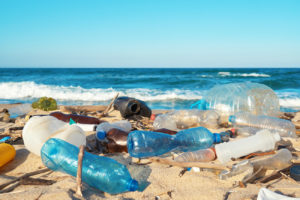Canada leads push to safeguard world’s oceans
The Government of Canada is at the forefront of critical international efforts to protect the marine environment. As the country with the longest coastline in the world, Canada spearheaded the Ocean Plastics Charter under its G7 presidency in 2018.
“The health of our oceans is critical to reducing climate change, growing economies, supporting coastal communities and protecting ocean biodiversity and ecosystems. Plastic pollution knows no borders and requires global action. Through the Ocean Plastics Charter, Canada is partnering with governments, businesses, and organizations from around the world to move toward a sustainable and circular economy for plastics. Together, we are working towards a future of zero plastic waste,” said Jonathan Wilkinson, Minister of Environment and Climate Change in Canada.
The charter outlines concrete actions to eliminate plastic pollution and recognizes the need for urgent action to address the impacts of marine litter on the health and sustainability of our oceans, seas, coastal communities, and ecosystems.
As of May 2020, 26 governments and 69 businesses and organizations have endorsed the Charter, committing to more sustainable approaches to produce, use, and manage plastic and reduce plastic pollution in the oceans.
In support of the charter, Canada has also committed Can$ 100 million (more than US$ 71 million) for developing countries to prevent plastic waste from entering the oceans, to address plastic waste on shorelines, and to better manage existing plastic resources.
To achieve its international commitments under the Ocean Plastics Charter, Canada is taking ambitious domestic action, which includes a vision to achieve zero plastic waste by 2030, whereby plastics stay in the economy – and out of the environment. Federal, provincial and territorial governments are working together to implement the Canada-wide Strategy on Zero Plastic Waste – a path forward to better prevent, reduce, reuse, recover, capture, and clean up plastic waste. By engaging with industry and other levels of government, Canada aims to recover 100 percent of all plastics by 2040.
To learn more, read the full and original article at UNEnvironment.org



